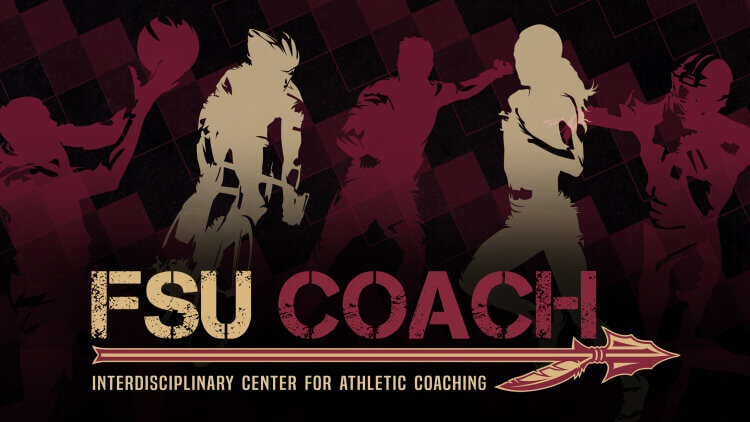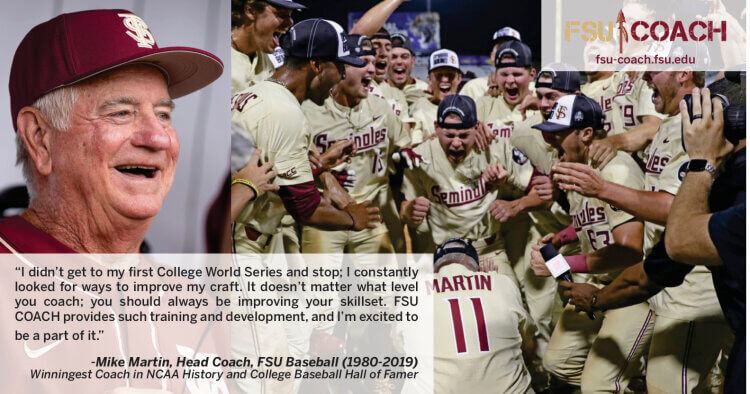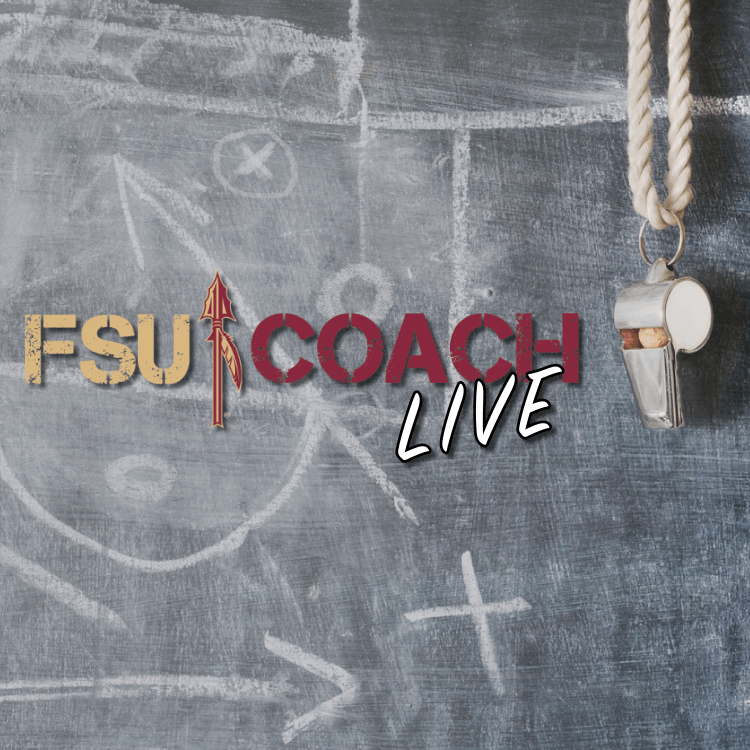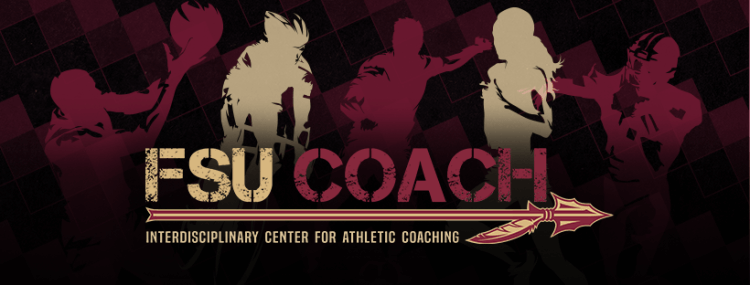(2 Minute Read)
Recently, FSU COACH Director Tim Baghurst wrote a PHE Quick Read on the concept that anyone can coach, but to do so safely and effectively, the coach needs to be well-trained. Unfortunately, most coaches in the United States, from the recreational to professional, lack any formal education in coaching.

For example, according to the National Council for Accreditation of Coaching Education (2011), only 5-10% of youth coaches have received any formal training. Fortunately, a number of universities are beginning to respond to this tremendous need, and Florida State University (FSU) is adopting a unique approach to revolutionize athletic coaching education and research.
FSU COACH, an interdisciplinary center for athletic coaching, was founded independent of any university department. It has a teaching, research, and engagement mission to: (1) administer a new online graduate certificate in Athletic Coaching with plans to expand graduate programming soon, (2) conduct research and advance the coaching knowledge base, (3) offer coach development to the community at large, and (4) help sport organizations through individualized training and support.

The unique independent structure of FSU COACH augments its ability to optimally meet its mission in many ways. For example, many athletic coaching programs at other universities reside in diverse academic departments with common course requirements. While not always true, often it means that coaching programs must adopt a “bolt-on” or “option” approach to their curriculum, whereby coaching courses are added onto a predetermined common core of courses in the department. However, the independent nature of FSU COACH allows the Center to ensure coaching-specific courses remain the focus of the core curriculum while also allowing the Center to collaborate with other sport science programs on campus to augment elective courses for student specializations.
Additionally, the interdisciplinary nature of the Center supports strong collaboration among its faculty and other academic programs on campus (e.g., sport psychology, sport management, sport nutrition) to serve as a conduit for contemporary interdisciplinary research in the realm of coaching. Interdisciplinary research in coaching is sorely needed (Fillery-Travis & Cox, 2014; Griffo, Jensen, Anthony, Baghurst, & Kulinna, 2019); therefore, coach education programs with the potential for interdisciplinary research approaches like those within FSU COACH have an enormous opportunity to expand our knowledge of the coaching profession across many different areas.

Finally, the interdisciplinary partnerships between FSU COACH and the other highly ranked sport science programs on campus provide a distinct advantage for engagement opportunities, as all of these programs possess extensive connections with organizations in the sport industry that routinely hire program graduates. In short, the independent yet interdisciplinary nature of FSU COACH creates: (1) better and more relevant academic programming, (2) a stronger platform for high impact interdisciplinary research, and (3) a synergistic approach to engagement activity.
FSU COACH has also adopted a philosophy to hiring faculty that emphasizes both demonstrated scholarly skills as well as applied coaching experience. Consequently, program faculty can rely on their extensive coaching experience in individual and team sports to understand the contemporary challenges that coaches face while also incorporating their scholarly background to deliver highly relevant educational programs and high impact research projects.

From the volunteer youth coach to the highly visible coach of professionals, the coaching profession has ample room to improve coach education and development. The innovative approach of FSU COACH drives its goal to meet the needs of all aspiring coaches, regardless of their level and aspirations. Those interested in learning more can subscribe to the Center’s monthly newsletter for updates and best practice for coaches or contact its Director, Tim Baghurst for more specific inquiries.
References
Fillery-Travis, A., & Cox, E. (2014). Researching coaching. In E. Cox, T. Bachkirova, & D. Clutterbuck (Eds.), The complete handbook of coaching (pp. 445-461). Los Angeles: SAGE.
Griffo, J., Jensen, M., Anthony, C., Baghurst, T., & Kulinna, P. (2019). A decade of research literature in sports coaching (2005-2015). International Journal of Sports Science & Coaching, 14(2), 205-215. doi: 10.1177/1747954118825058
National Council for Accreditation of Coaching Education. (2011). Coaching counts! Case statement. Retrieved from https://www.shapeamerica.org//publications/resources/teachingtools/coachtoolbox/upload/Coaching-Counts-Case-Statement-V1-1.pdf
